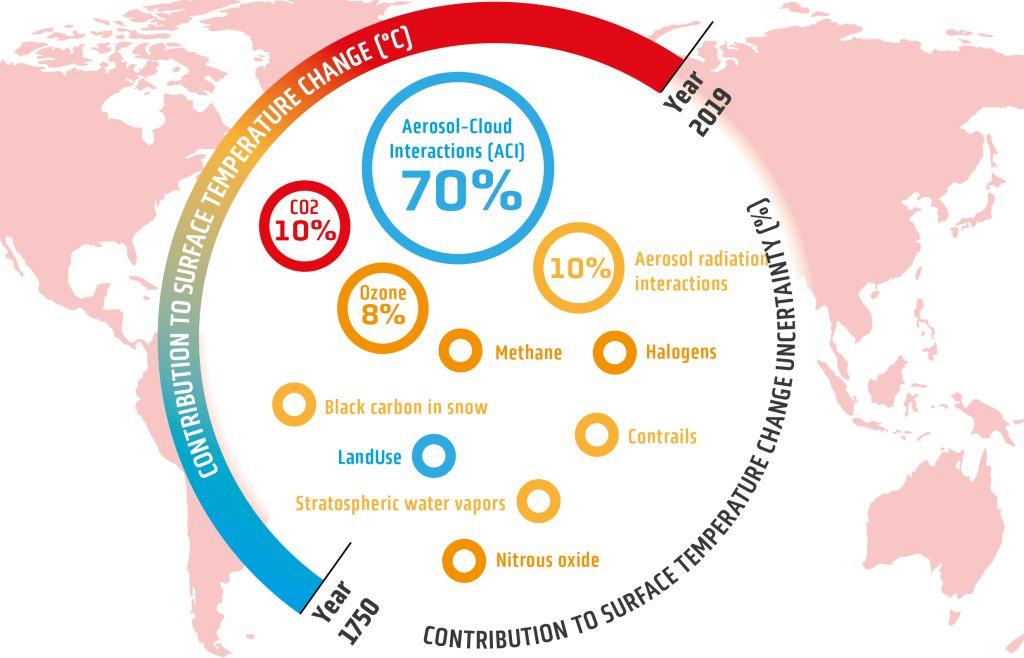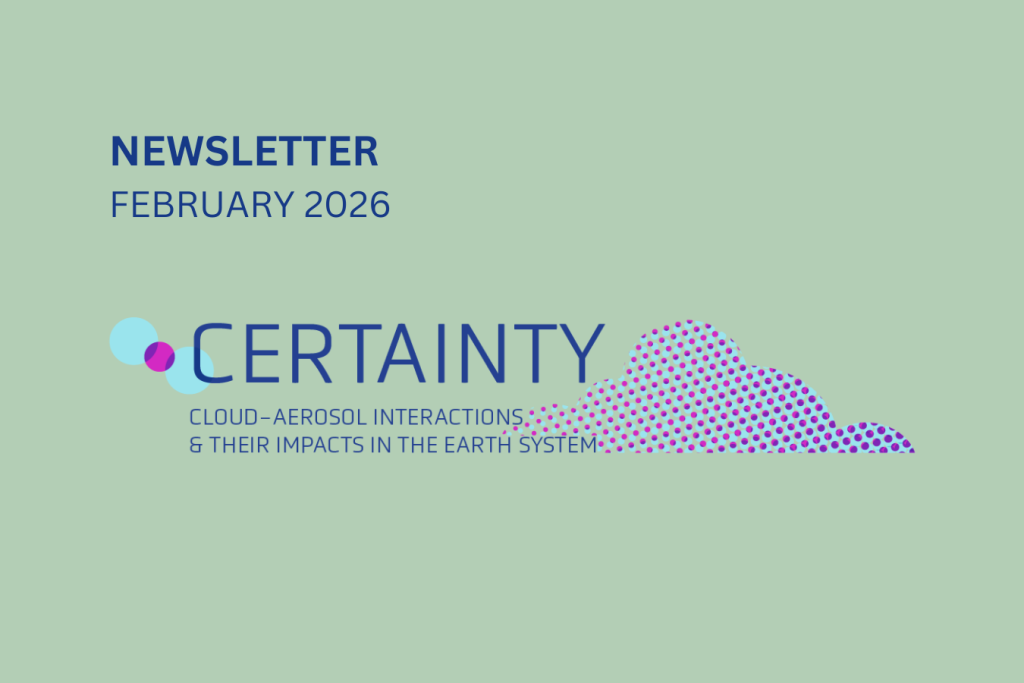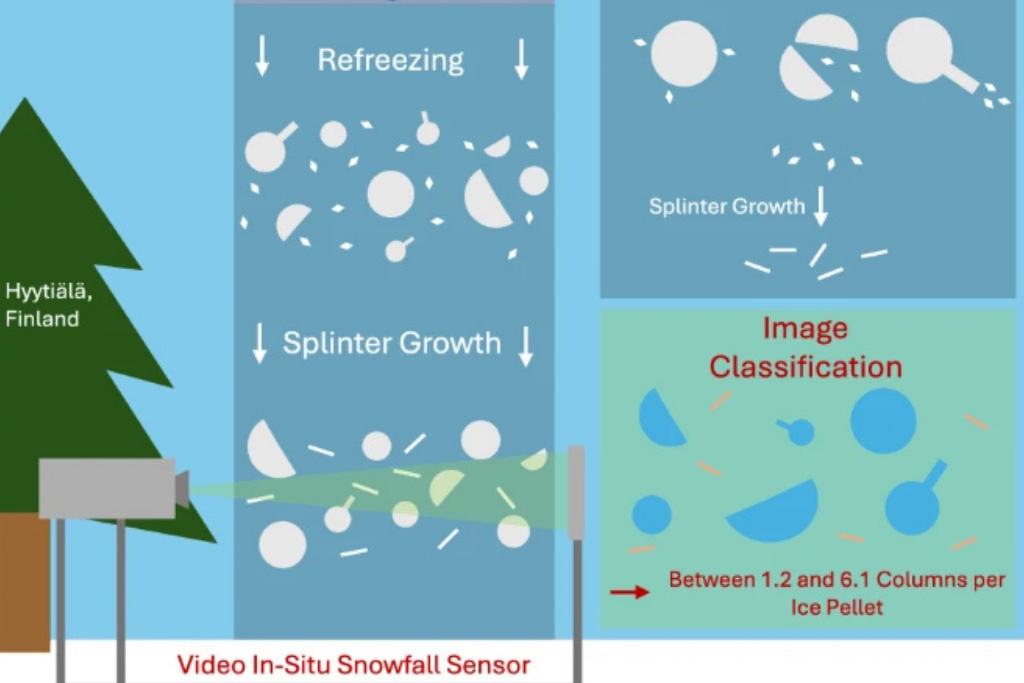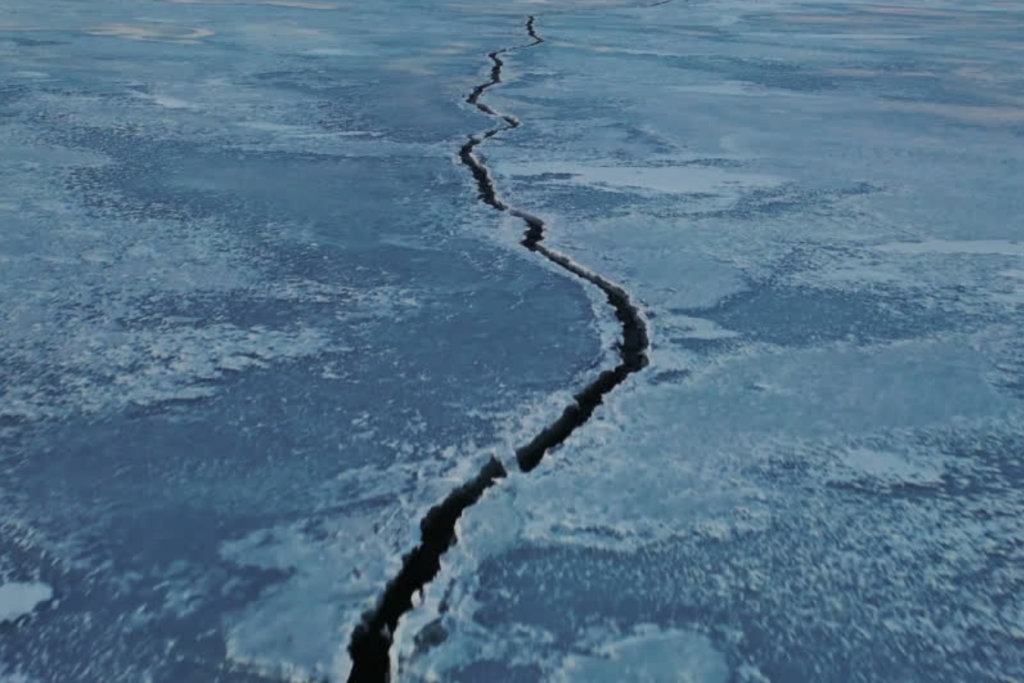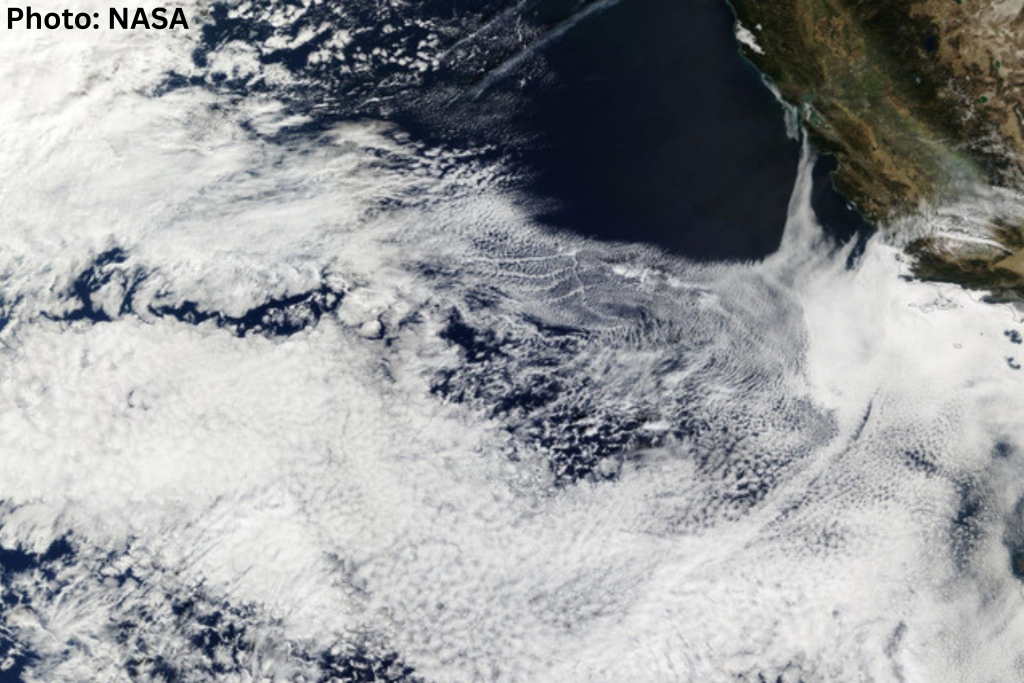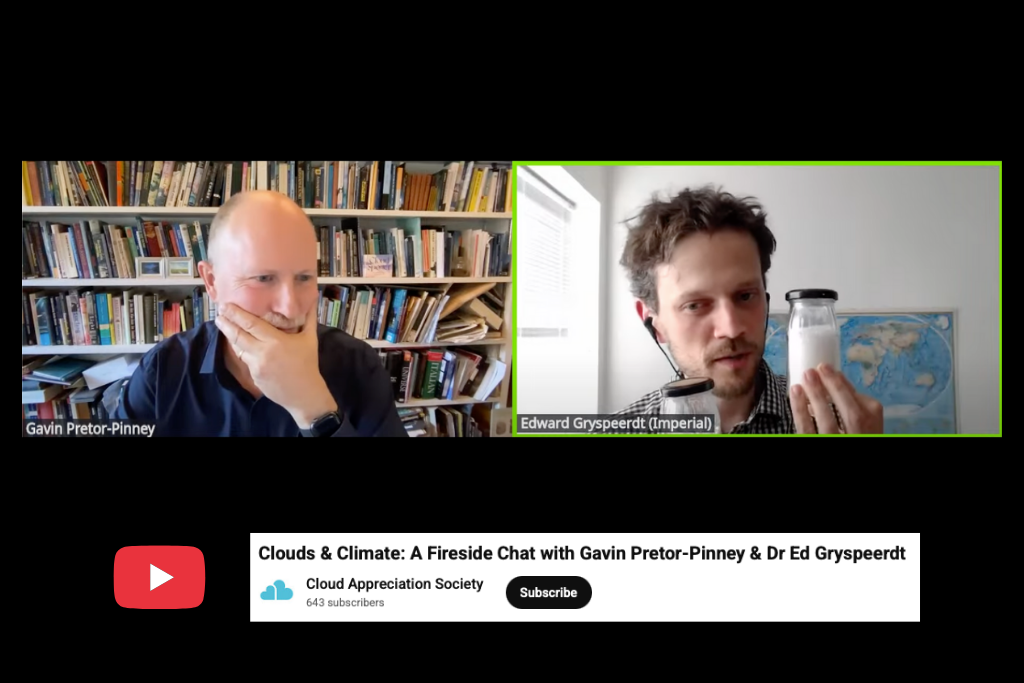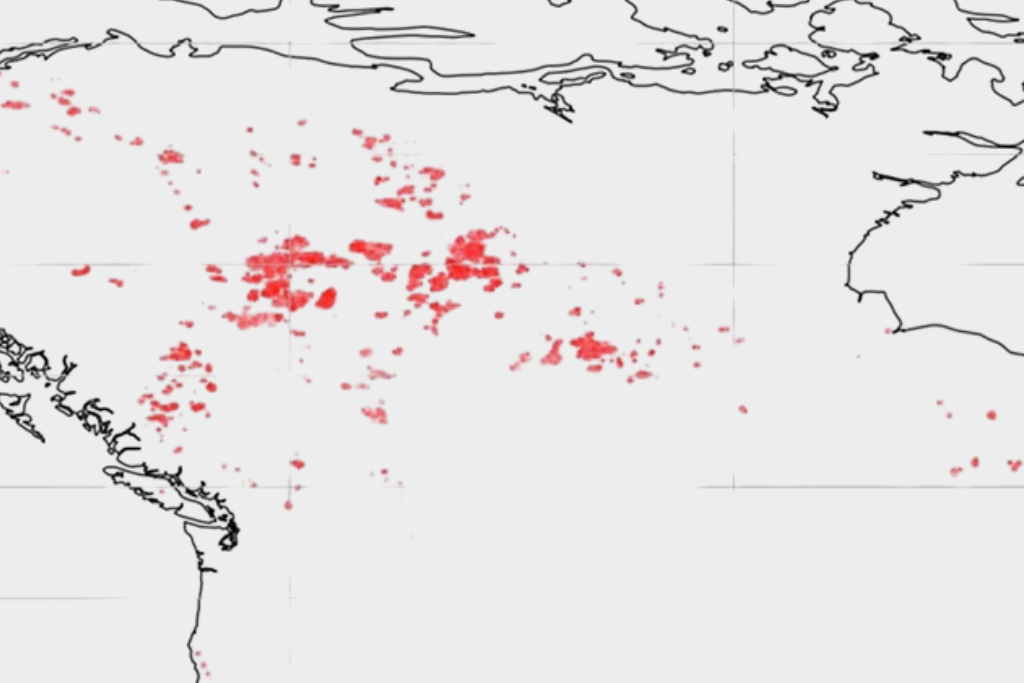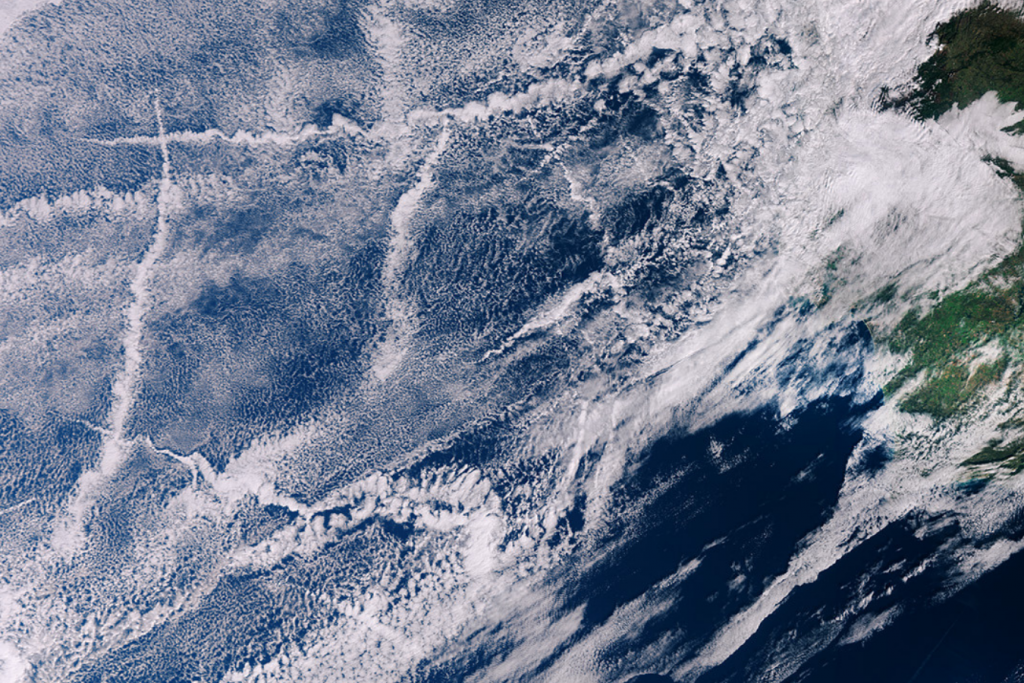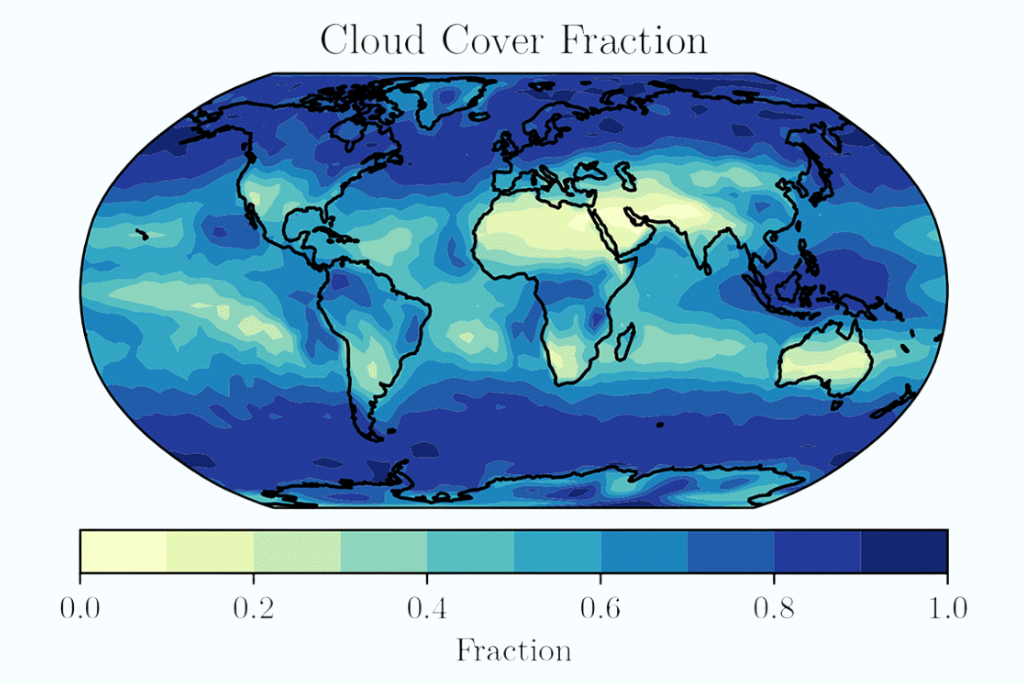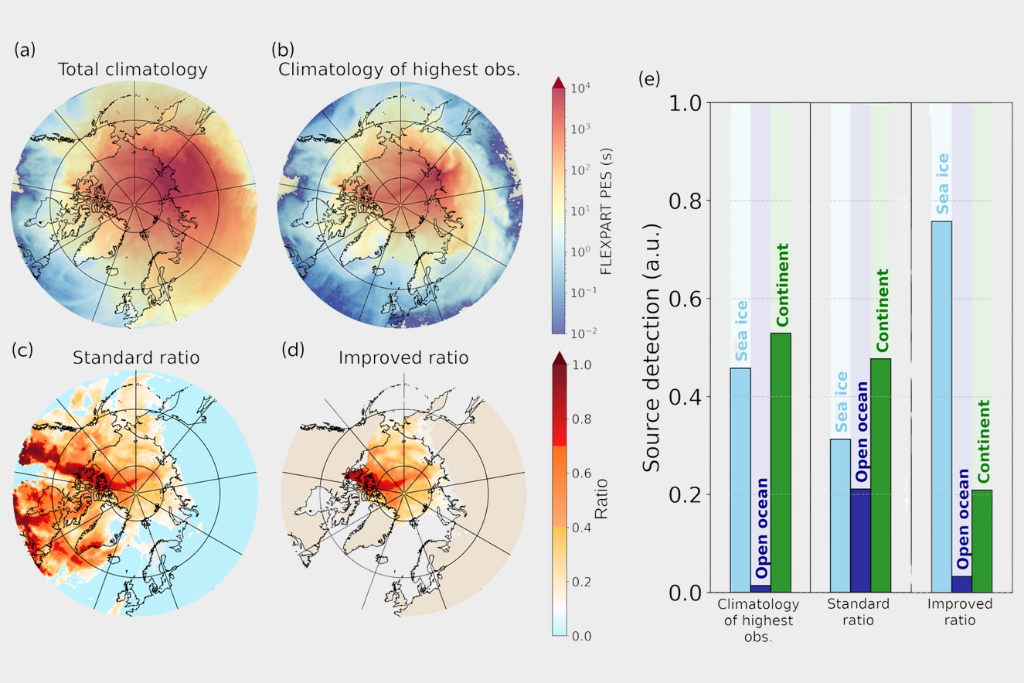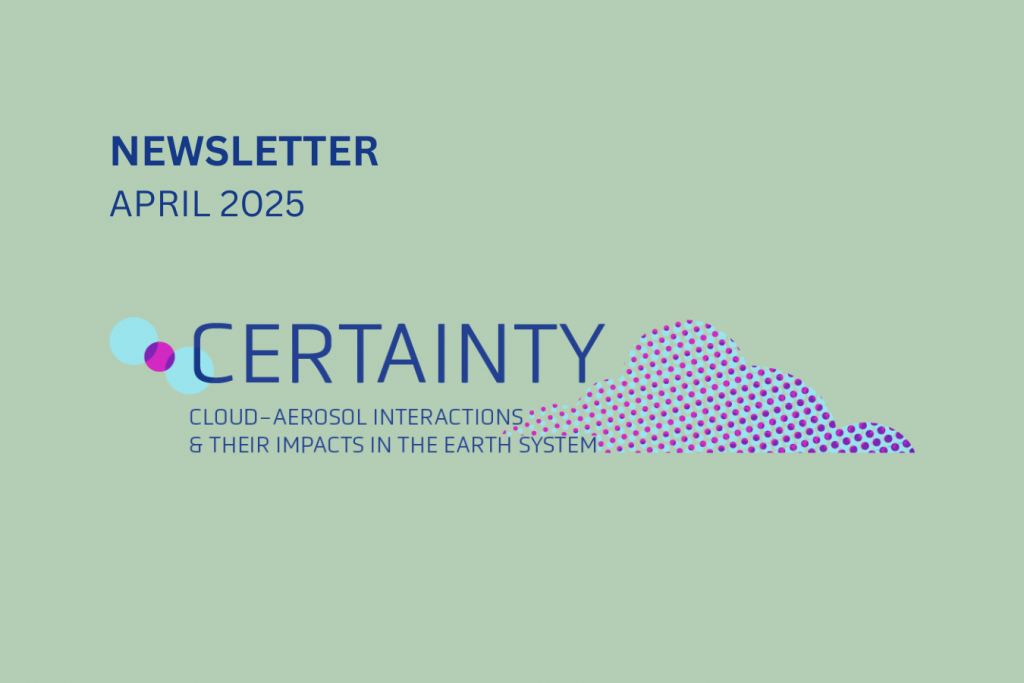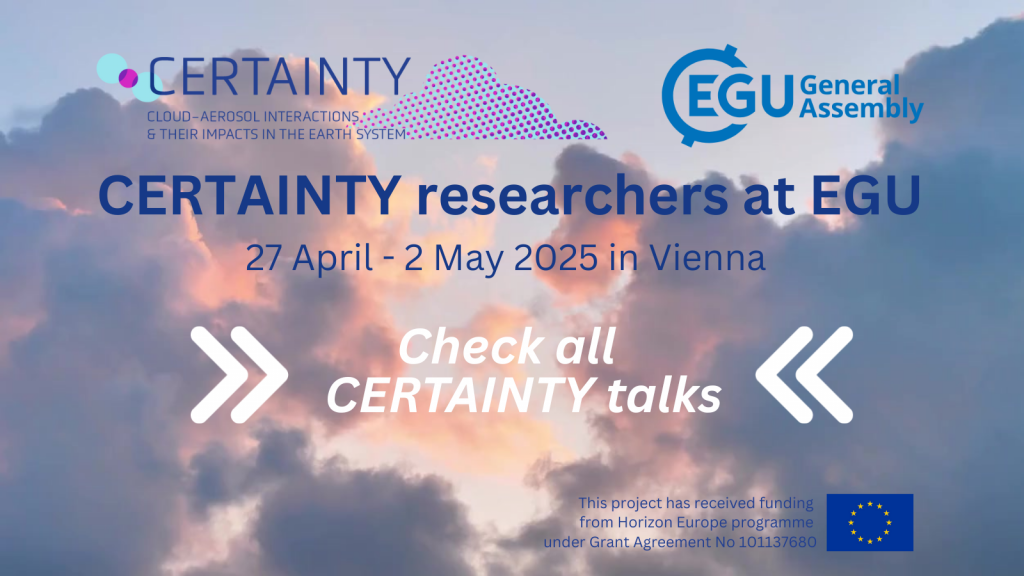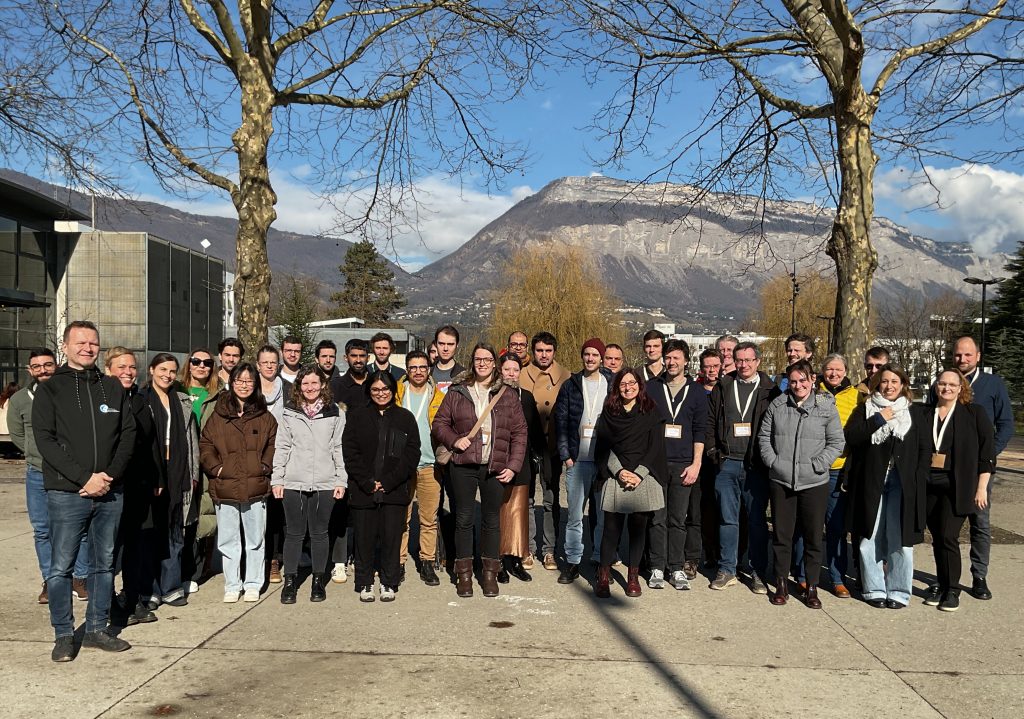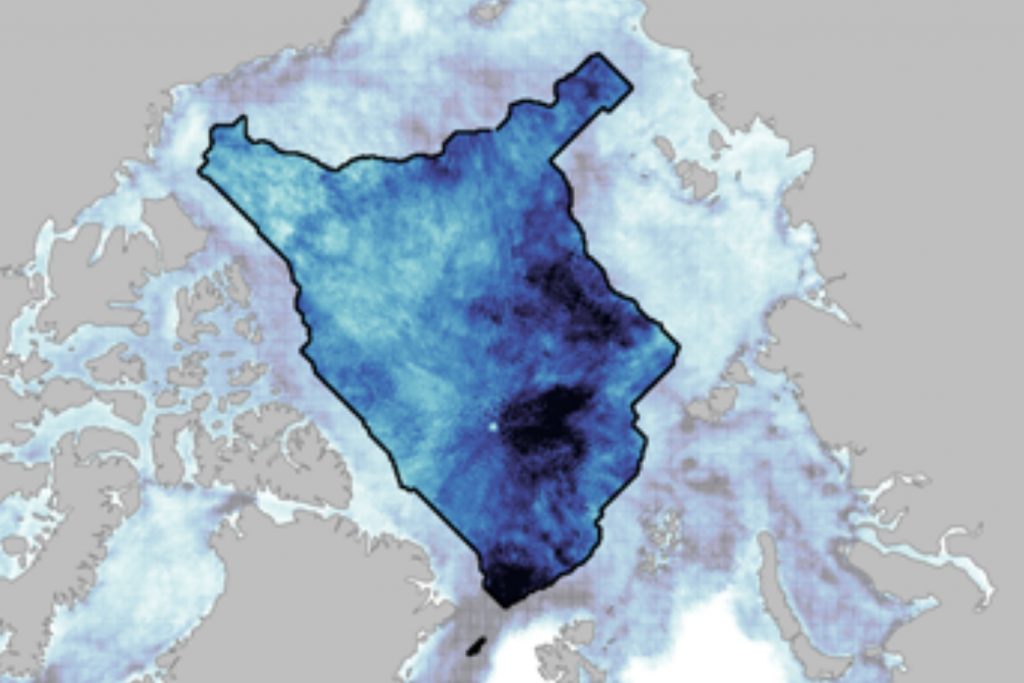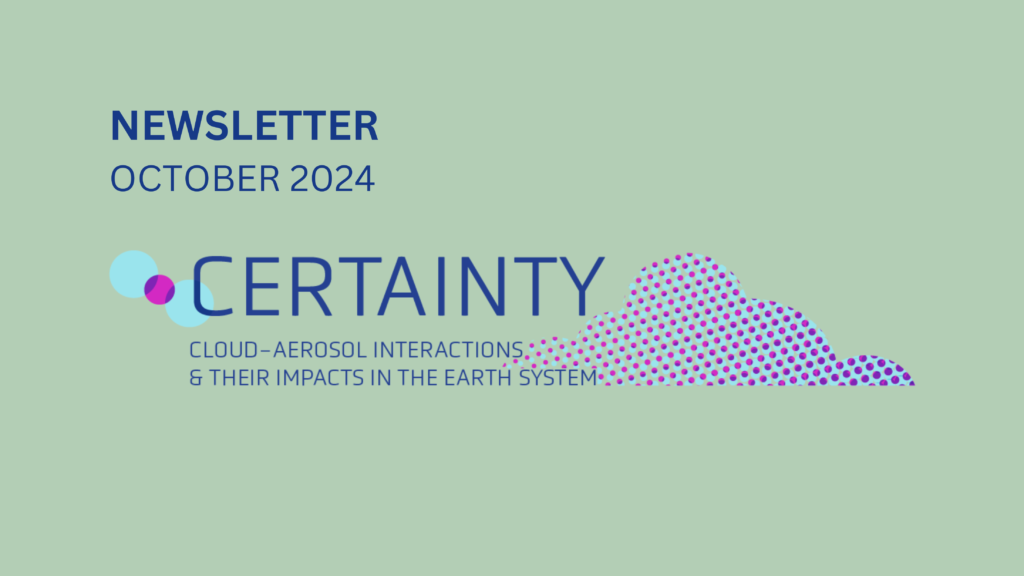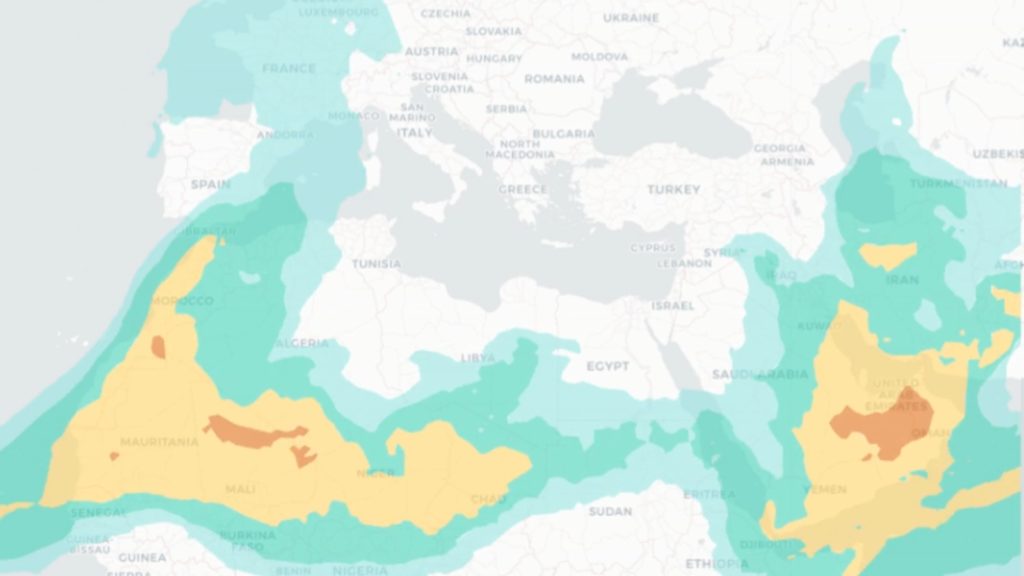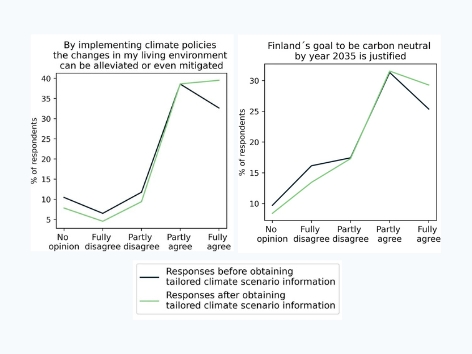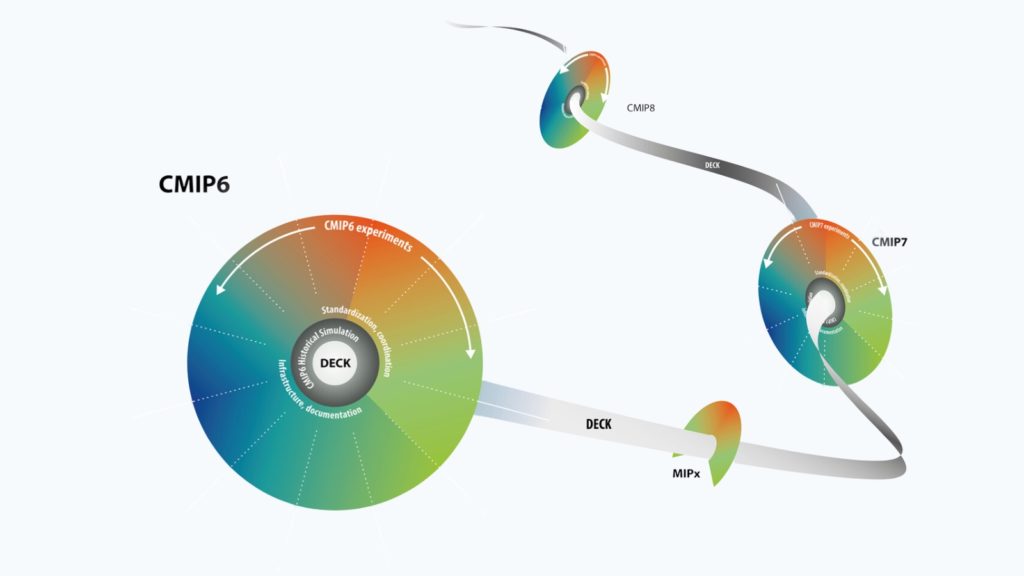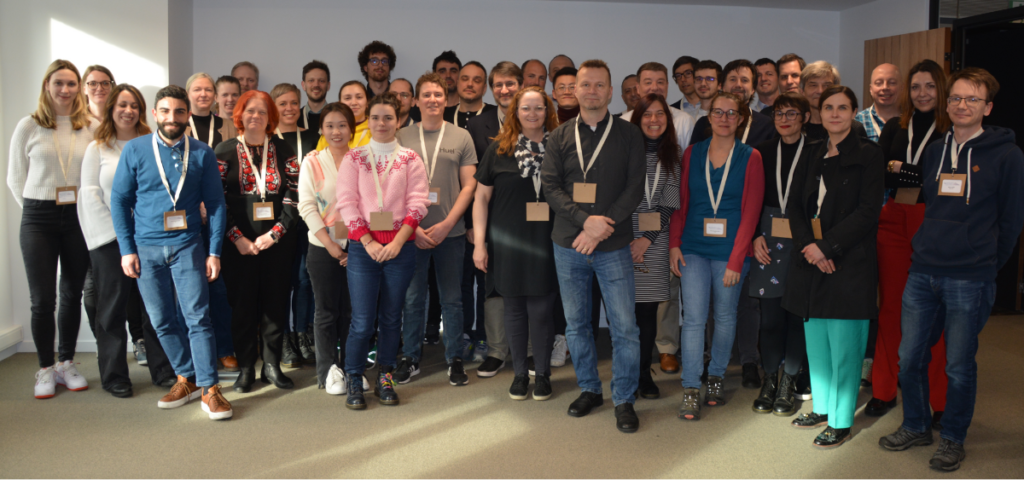NEWS
Europe’s leading scientists on aerosol and clouds have joined forces to uncover a dominant source of uncertainty in climate science.
Researchers often measure far more ice crystals in mixed-phase clouds than there are ice-nucleating particles (INPs) to trigger their formation, suggesting that extra ice must come from other pathways. These pathways create new ice crystals without requiring INPs, and Pfeifer et al. analyzed one such process during a refreezing rain event in Finland.
More than 40 coordinators of EU Polar Cluster projects have co-signed a joint letter to EU leaders and decision-makers, calling for continued investment in polar science to ensure Europe remains prepared, resilient, and a global leader in understanding and responding to climate change.
Aerosols have an uncertain climate impact because they interact with clouds in complex ways, especially low-level marine stratocumulus. These clouds behave differently day and night, yet most observations focus on daytime. A new analysis by Geoffrey Pugsley, Edward Gryspeerdt and Vishnu Nair shows that the key processes actually occur at night.
Boreal forests, covering 14% of Earth’s land, are key players in the climate system. They store carbon, regulate energy and water cycles, and release aerosols that interact with the atmosphere. A new study by Ezhova et al., based on long-term observations at the SMEAR II station in Finland, shows that, in boreal forests, organic aerosols enhance photosynthesis under cumulus clouds.
CERTAINTY researcher Ed Gryspeerdt joined Gavin Pretor-Pinney for a special online fireside chat organized by Asterisk Labs and the Cloud Appreciation Society. Together, they explored the wonder of clouds and their vital role in Earth’s climate system, bridging science, beauty, and public engagement.
Roșu et al. found that the wildfire emissions caused widespread increases in aerosol concentrations across the Northern Hemisphere, leading to a measurable cooling of surface air temperatures.
These effects extended well beyond Canada, reaching as far as Eastern Siberia, and persisted for several months.
During the wet season of the Amazon rainforest, pollution from the Brazilian city Manaus can substantially increase cloud condensation nuclei compared to the natural background. Using high-resolution simulations, Wang X. et al. found that while doubling emissions raised aerosol concentrations & cloud droplet numbers, the overall impact on cloud water and rainfall was minimal.
Findings by Zhang et al. indicate that the regulation contributed to additional greenhouse gas warming. However, the climate signal from this effect remains difficult to detect, except in the southeastern Atlantic where it is more pronounced.
A recent study shows that the direct radiative effect of aerosols has continued to strengthen, even as emissions declined, whereas the indirect effect has weakened in line with emissions.
Understanding the origins of particles and trace gases in rapidly changing polar climates is crucial for accurate climate models, especially regarding how these particles interact with clouds. A new study by Anderson Da Silva et al. validated an improved protocol to trace the origins of particles …
A new study published in Nature Geoscience reveals that clouds are more sensitive to aerosol changes than previously thought.
The findings indicate that fine particle emissions from human activities have contributed to climate cooling by altering cloud characteristics, partially offsetting the warming caused by greenhouse gases.
Don’t miss the chance to discover the latest insights from our researchers!
Join us at EGU 2025 in Vienna and online to learn more about our work.
Aerosols and clouds play crucial roles in Earth’s climate system, yet their interactions and impacts remain among the greatest uncertainties in climate science.
To address this challenge, the CERTAINTY project was launched in 2024, aiming to deepen our understanding of these complex processes.
The CERTAINTY annual meeting was held in Grenoble (France) from 11-14 February 2025, marking an important milestone as we enter Year 2 of the project. The meeting provided a valuable opportunity to assess our progress, align on strategic goals, & strengthen collaborations with our partners…
To reduce uncertainty in our understanding of aerosols and clouds and to improve our predictions of their current and future impact on climate, we need observational systems that can provide constraint on our model tools. Climate models seek to replicate the state of the global system and predict its future change on timescales of years to decades.
Sea spray aerosols constitute the majority of the aerosol mass in polar regions annually and are a key factor influencing the polar climate through the aerosol direct radiative effect and through aerosol-cloud interactions.
In a recent paper, Rémy Lapere et al. produce an estimate of the location, timing and amount of sea spray emissions from leads at the scale of the Arctic Ocean for 1 year.
October 2024 Newsletter
Find out more about CERTAINTY researchers’ participation in EarthCARE, our latest publications, and other updates.
CERTAINTY promotes scientific discovery by following FAIR principles, ensuring open and structured data. A strong Data Management Plan supports long-term data sharing and reuse. Project outputs will be publicly available. This approach ensures the project’s findings are transparent, discoverable, and valuable to the global research community.
Desert dust, created by wind erosion in arid regions, is the main source of ice-nucleating particles (INPs) in the atmosphere, which are crucial for determining the balance between ice crystals and liquid droplets in mixed-phase clouds (MPCs). Without INPs, cloud droplets in MPCs would remain liquid until they reach about -37°C, the temperature at which homogeneous freezing occurs. However, INPs can trigger ice crystal formation earlier, leading to rapid ice growth. This influences precipitation, cloud properties, and the Earth’s albedo.
A new study, involving over 1,000 Finns used an innovative interactive tool to assess the impact of tailored climate information on knowledge, attitudes, and psychological detachment from climate change. The study highlights the need for different communication strategies depending on the audience’s vulnerability.
The Coupled Model Intercomparison Project (CMIP) of the World Climate Research Programme is an international climate modelling project designed to better understand past, present and future changes in the climate.
CMIP has been coordinating model experiments across the climate science community since 1995. Over the years, it has become one of the cornerstones of climate science worldwide, providing crucial information to the Intergovernmental Panel on Climate Change (IPCC). Preparations for the seventh phase of the project (CMIP7) are well underway.
The CERTAINTY Project Kickoff Meeting took place from February 27th to February 29th, 2024, at Maison Irène et Frédéric Joliot-Curie in Brussels, Belgium. The meeting aimed to initiate discussions and collaborations among project partners. Throughout the meeting, participants engaged in insightful discussions, exchanged ideas, and outlined plans for project implementation. The agenda included presentations from key stakeholders, discussions on policy context, and detailed talks on various work packages and project aspects. Additionally, social events such as dinners facilitated networking and collaboration among attendees.
CERTAINTY: Cloud-aERosol inTeractions & their impActs IN The earth sYstem project, funded by the Horizon Europe program, aims to advance our comprehension of clouds and aerosols in the climate. This project aims to refine and use observations and models to understand and describe the intricate interactions between clouds and aerosols within climate and weather system

